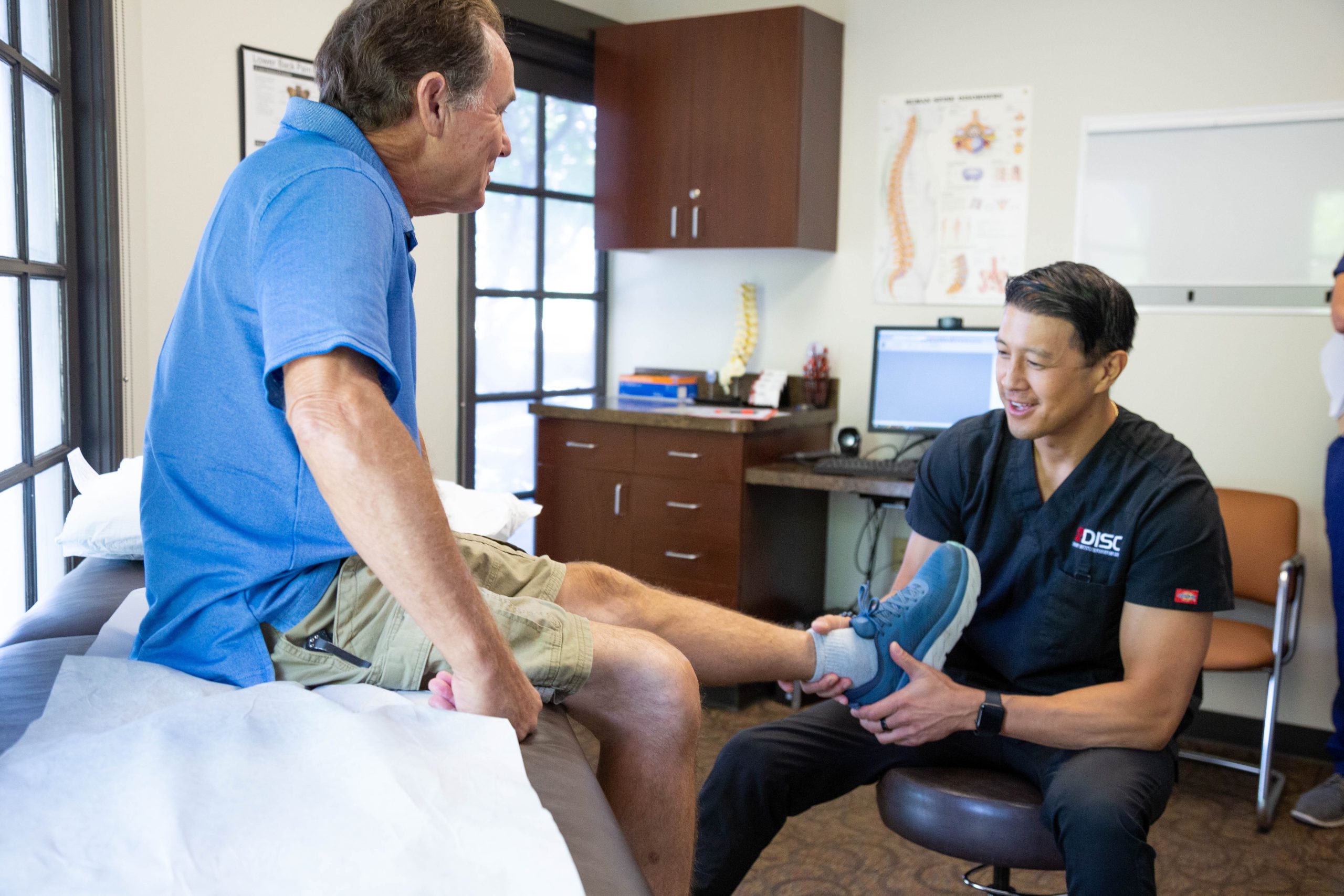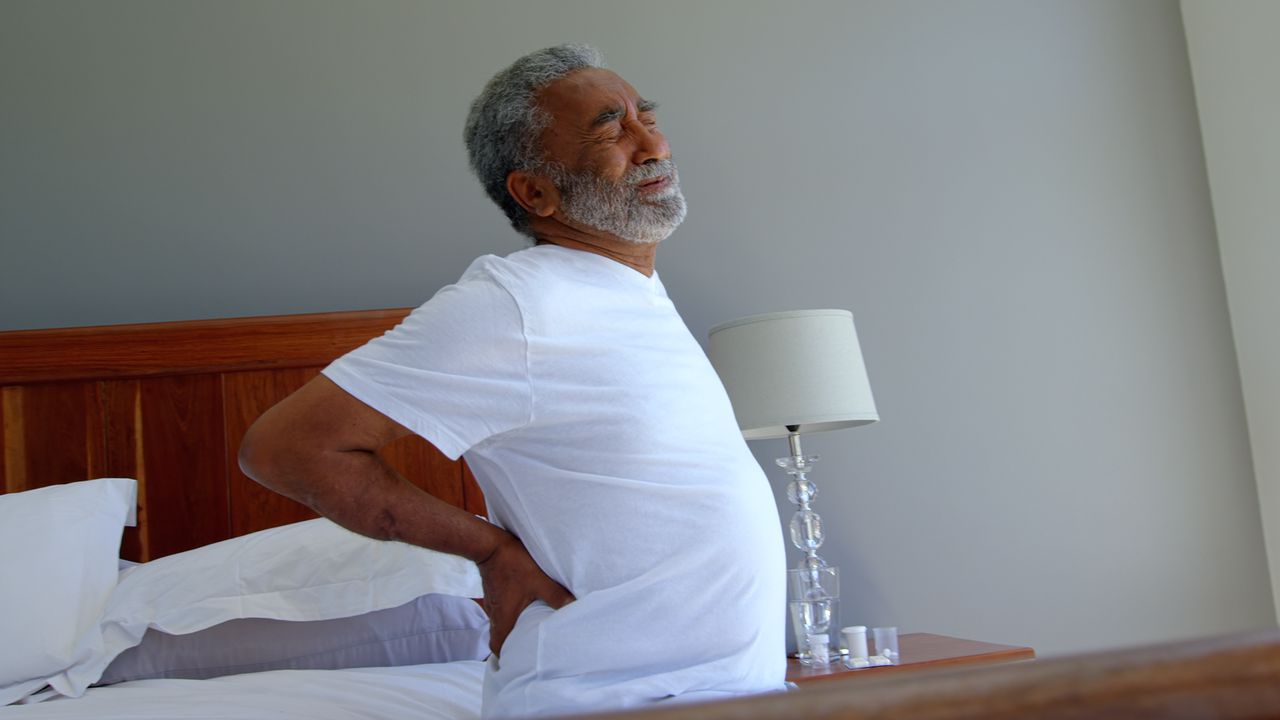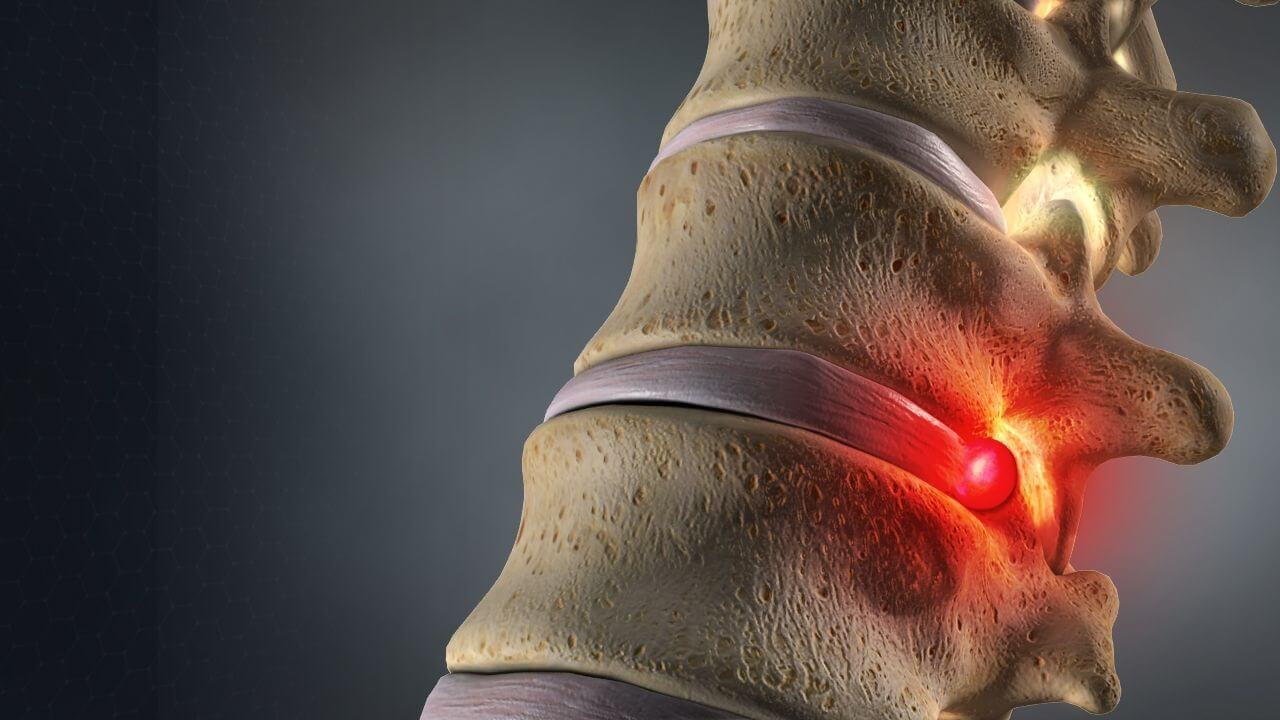One of the most common causes of severe back pain is a spinal injury known as a herniated disc. This condition goes by many names — disc herniation, bulging disc, slipped disc, collapsed disc. Each term refers to intervertebral discs that have become weakened and are pressing on the spinal cord.
A herniated disc can be a painful, even debilitating injury. It can impact your daily routine and lead to poor quality of life. At Desert Institute for Spine Care, we are a team of expert doctors who can treat your herniated disc. With several Arizona locations, we treat the source of your pain, whether you have a cervical or lumbar herniated disc. If you’d like to talk more to one of our professionals about your herniated disc, contact us or make an appointment today!




When it comes to spinal health, herniated discs are the most common diagnosis among spine-related abnormalities. Bulging discs can impact both the lumbar region in the lower back or the neck’s cervical spine. The soft, rubbery cushion between your vertebrae is called an intervertebral disc.
Wear and tear, injury or poor posture can weaken a disc’s integrity. As it loses its shape, it can bulge and put pressure on the nerves in the spinal canal. The soft inner gel within can also leak into the spinal canal. These injuries can lead to a variety of painful symptoms in the back, legs, neck or arms, depending on whether the herniation is in the lumbar or cervical spine.
Your spine and intervertebral discs endure a lot of stress over the years. The disc’s sturdy outer structure, the annulus fibrosis, can become brittle and tear, allowing the nucleus pulposus within to protrude or extrude. Over time, the herniated disc can become more obvious as it puts pressure on the spinal nerves, leading to inflammation and painful symptoms.
The most common causes for bulging or herniated discs are:
Herniated and bulging disc symptoms vary based on the location of the herniation. If you have a cervical herniated disc, you may feel an array of symptoms in your neck, shoulders, arms or even your hands and fingers. Herniated or bulging discs in the lower back will cause symptoms in your buttocks, thigh, calves, feet or toes, depending on the level of the bulging disc. Lumbar herniations can also affect the sciatic nerve, which runs from your hip down both sides of your legs.
Some of the symptoms of a herniated or bulging disc include:

Whether you have a cervical herniated or bulging disc in your neck or a herniation in your lumbar region, you can be sure that the board-certified surgeons at DISC will utilize the most cutting-edge treatments to ensure your spinal health. Our centers in the Phoenix, AZ area offer a wide array of treatment options for bulging and herniated discs.
We generally begin with conservative care, such as pain medications, heat and cold therapy or therapeutic injections. However, if there is evidence of nerve damage, some type of surgical treatment may be needed for the pain before the herniated disc causes permanent nerve damage. The surgeons at DISC are experts in minimally invasive laser spine treatment for herniated lumbar and cervical discs.
You don’t have to struggle another day with chronic back pain. The doctors at DISC are here to help. We offer minimally invasive procedures for treating bulging discs from our locations in Arizona.
Our spine health blog features up-to-date spine education and expert spine tips from our spine specialists here at DISC.
1635 East Myrtle Avenue Suite 100, Phoenix, AZ 85020, USA
18700 North 64th Drive Suite 105, Glendale, AZ 85308, USA
8630 East Vía de Ventura Suite 210, Scottsdale, AZ 85258, USA
3487 South Mercy Road, Gilbert, AZ 85297, USA
1635 East Myrtle Avenue Suite 400, Phoenix, AZ 85020, USA